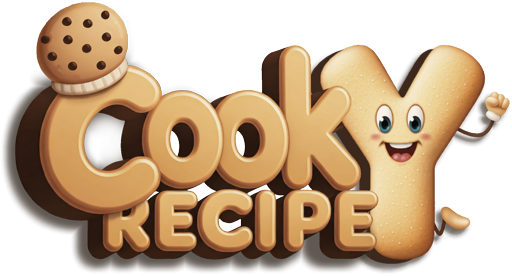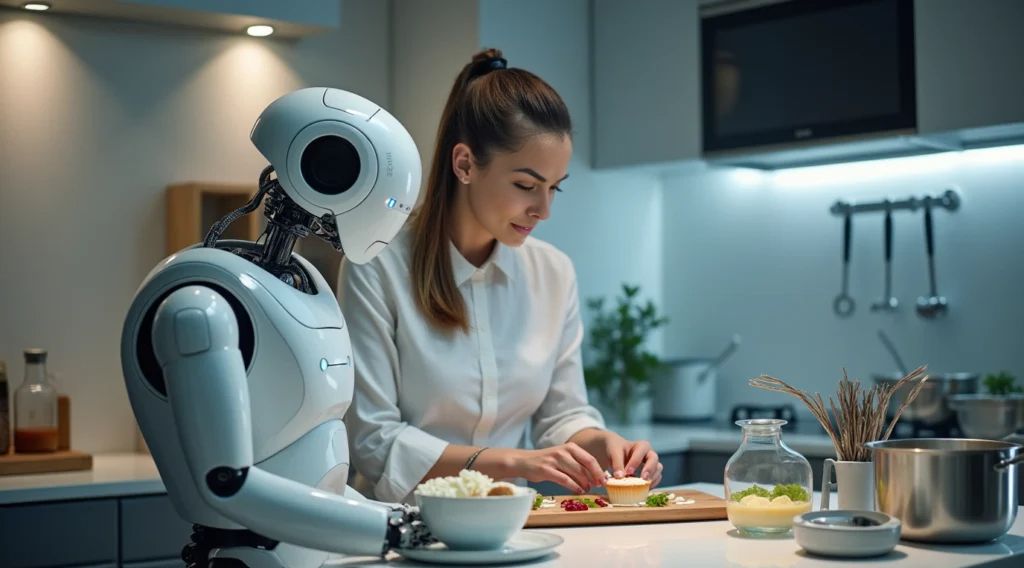1. Robot Chefs Arrive in Our Kitchens
1.1 Robots to Simplify Daily Meal Preparation
Predictions for Cooking in 2025 suggest that imagine coming home after a long day to a perfectly cooked meal waiting for you. Robot chefs will no longer be a luxury of science fiction but a part of everyday life. These cutting-edge devices, equipped with advanced AI and precision tools, will handle everything from chopping vegetables to plating dishes with gourmet-level presentation. No more time spent worrying about what to cook or how to balance flavors your robotic assistant will take care of it all.
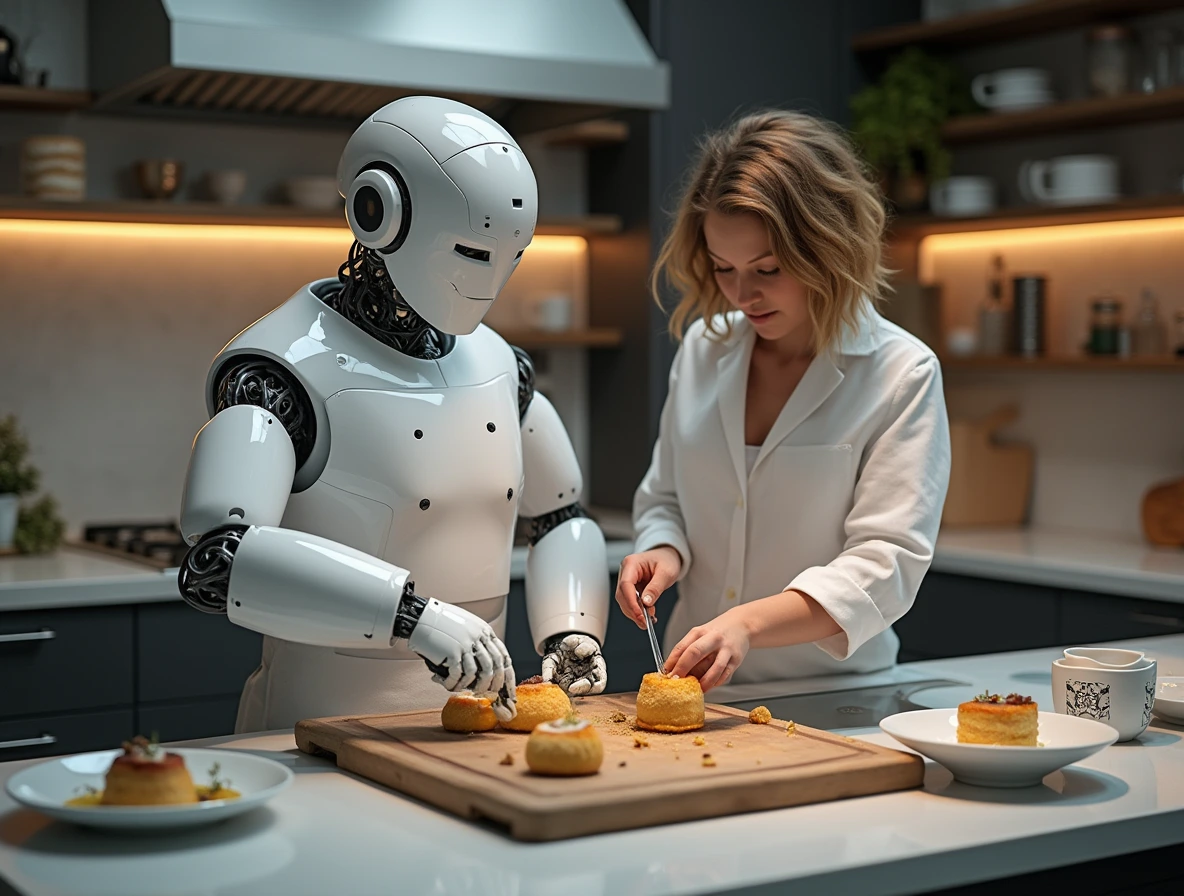
1.2 A Revolution for Food Enthusiasts
For cooking enthusiasts, these robots will do more than just prepare meals. They’ll act as tutors, helping users master complex techniques like soufflé-making or sous-vide cooking. Aspiring chefs will be able to experiment with bold recipes without fear of mistakes, as robots will guide them step-by-step and correct any errors in real-time. This technology will empower even novices to prepare Michelin-star-quality dishes, democratizing access to fine dining.
2. 3D-Printed Foods Ready to Take Over Our Plates
2.1 Unprecedented Shapes and Personalized Flavors
3D food printing will revolutionize the culinary world in 2025 by allowing chefs to create dishes with intricate designs and unique flavors tailored to individual preferences. Imagine a cake shaped like a piece of art or pasta perfectly customized for your taste buds. This innovation will open doors to culinary creativity never seen before, blurring the lines between food and art.
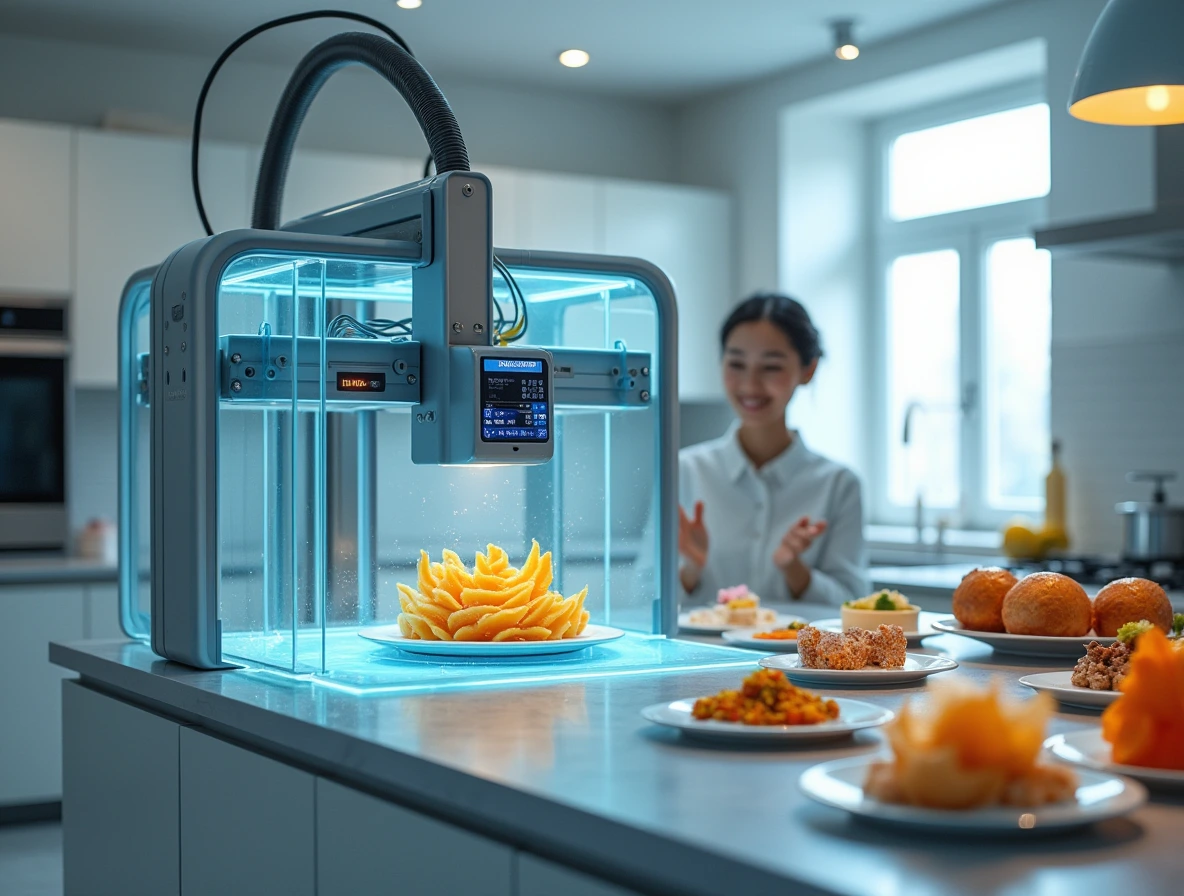
2.2 A Sustainable Solution to Reduce Food Waste
Beyond aesthetics, 3D printing will play a critical role in addressing food sustainability. By repurposing leftover ingredients and using alternative proteins like algae, crickets, or plant-based materials, this technology will reduce waste and lower the environmental impact of food production. Restaurants and households alike will benefit from this new approach, making it easier to align gastronomy with ecological responsibility.
3. Culinary Apps Powered by AI
3.1 Personalized Recipes at Your Fingertips
AI-driven culinary apps will become your best kitchen companion by 2025. These apps will analyze your eating habits, dietary restrictions, and the contents of your fridge to suggest tailor-made recipes. Craving something savory but only have a few ingredients? The app will create a unique recipe on the spot, ensuring every meal feels personalized and delightful.
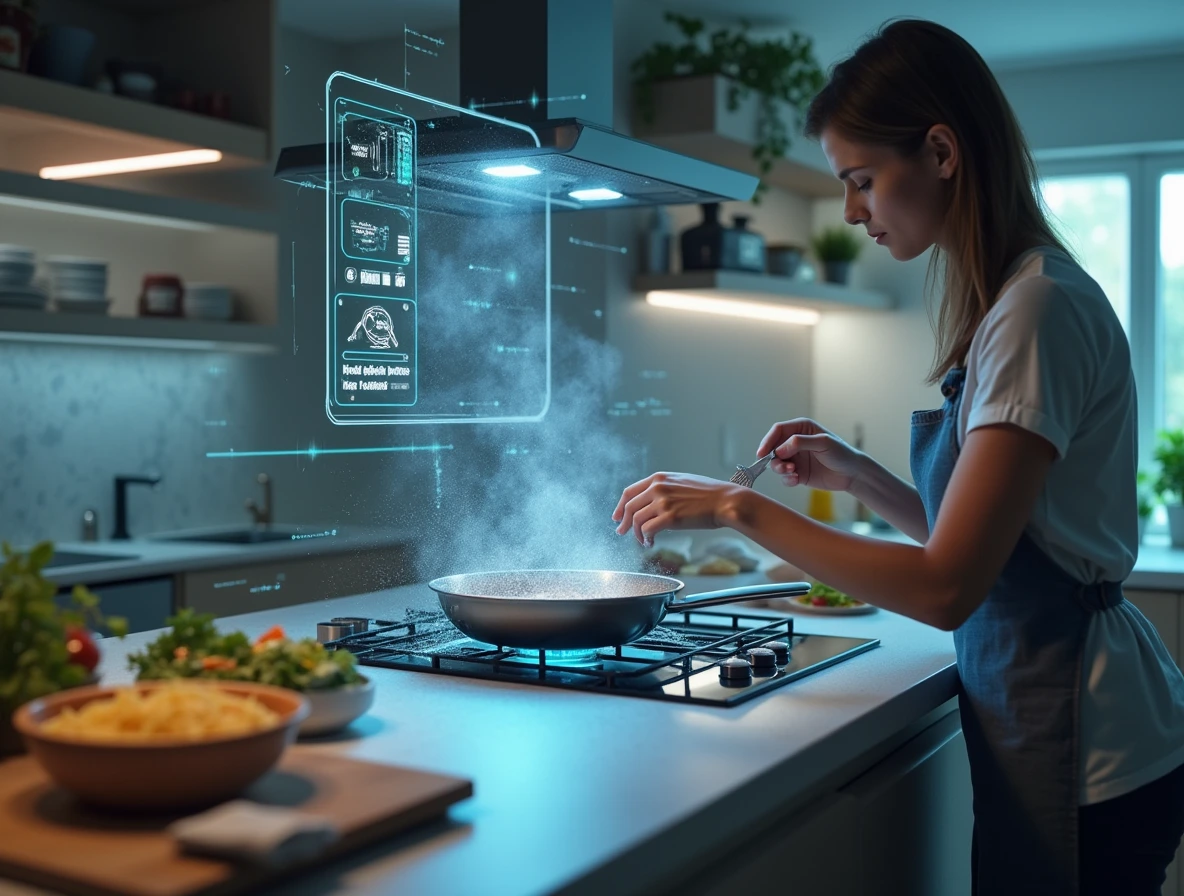
3.2 Real-Time Assistance During Cooking
Cooking will become a stress-free experience as these apps offer real-time assistance. Using augmented reality and voice guidance, they’ll correct mistakes before they happen. For instance, if your pasta water is boiling too aggressively, the app will notify you to adjust the heat, ensuring perfect results every time.
4. Virtual Supermarkets Revolutionize Grocery Shopping
4.1 A Fully Digital Shopping Experience
Grocery shopping will become a fully virtual experience by 2025. Picture yourself walking through a digital supermarket from the comfort of your home, selecting products using augmented reality. You’ll see 3D models of items, read detailed information about their origin, and even compare nutritional values with a simple glance.
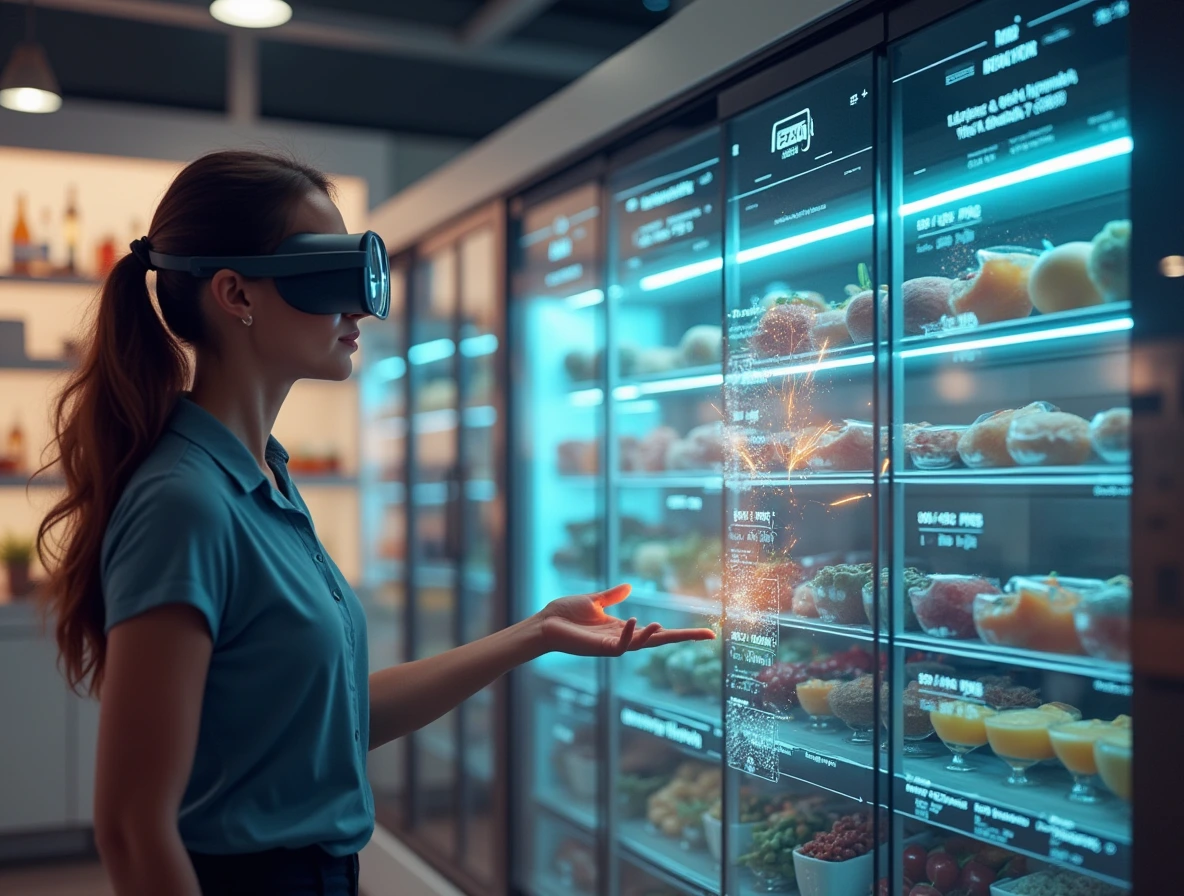
4.2 Faster Delivery Than Ever
Once your cart is full, drones or autonomous robots will deliver your groceries within minutes. These systems will ensure that fresh produce arrives quickly and safely, making grocery shopping more efficient and environmentally friendly than ever before.
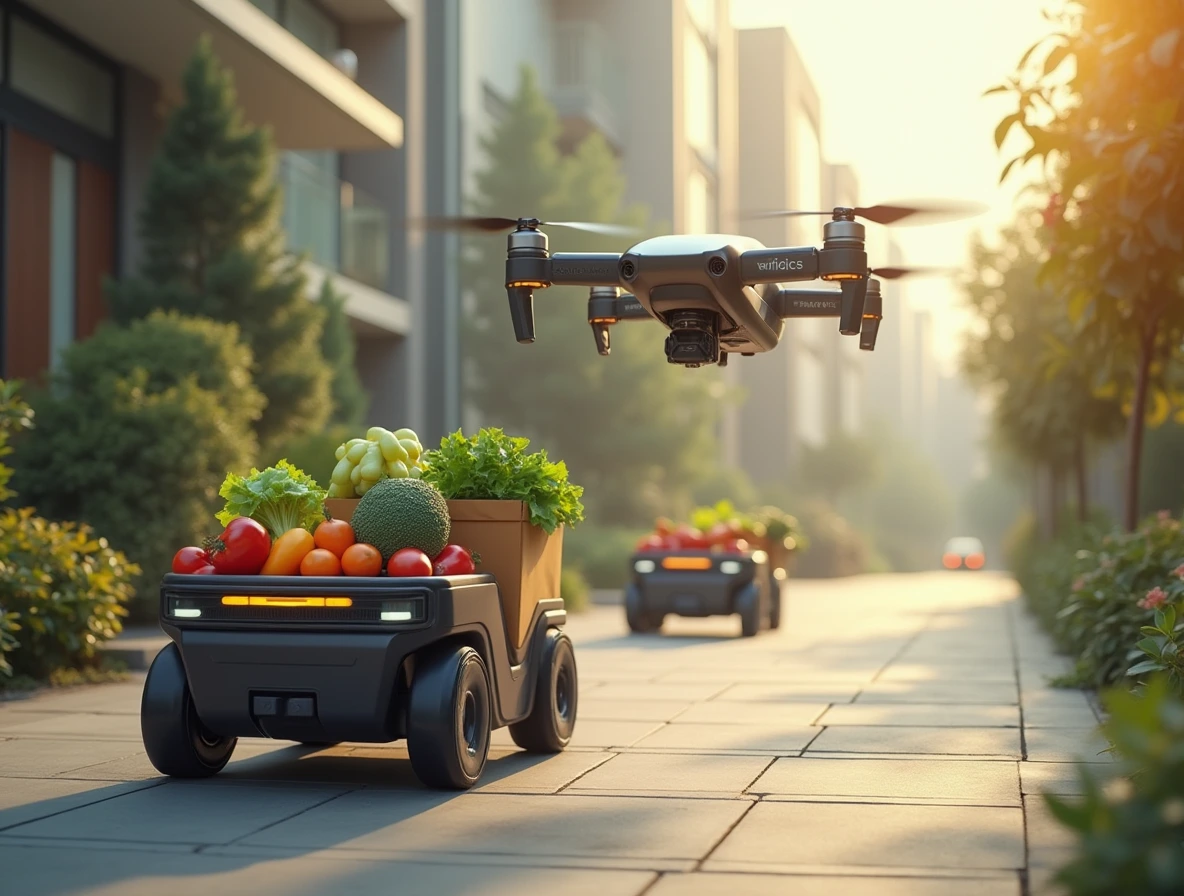
5. A More Connected Kitchen with Smart Devices
5.1 Intelligent Refrigerators and Cupboards
Smart devices will transform kitchens into hyper-connected ecosystems. Refrigerators will not only keep food fresh but also track inventory, notify you of expiration dates, and even suggest recipes based on what’s inside. Cupboards equipped with similar technology will ensure that you never run out of staples like flour, sugar, or spices.
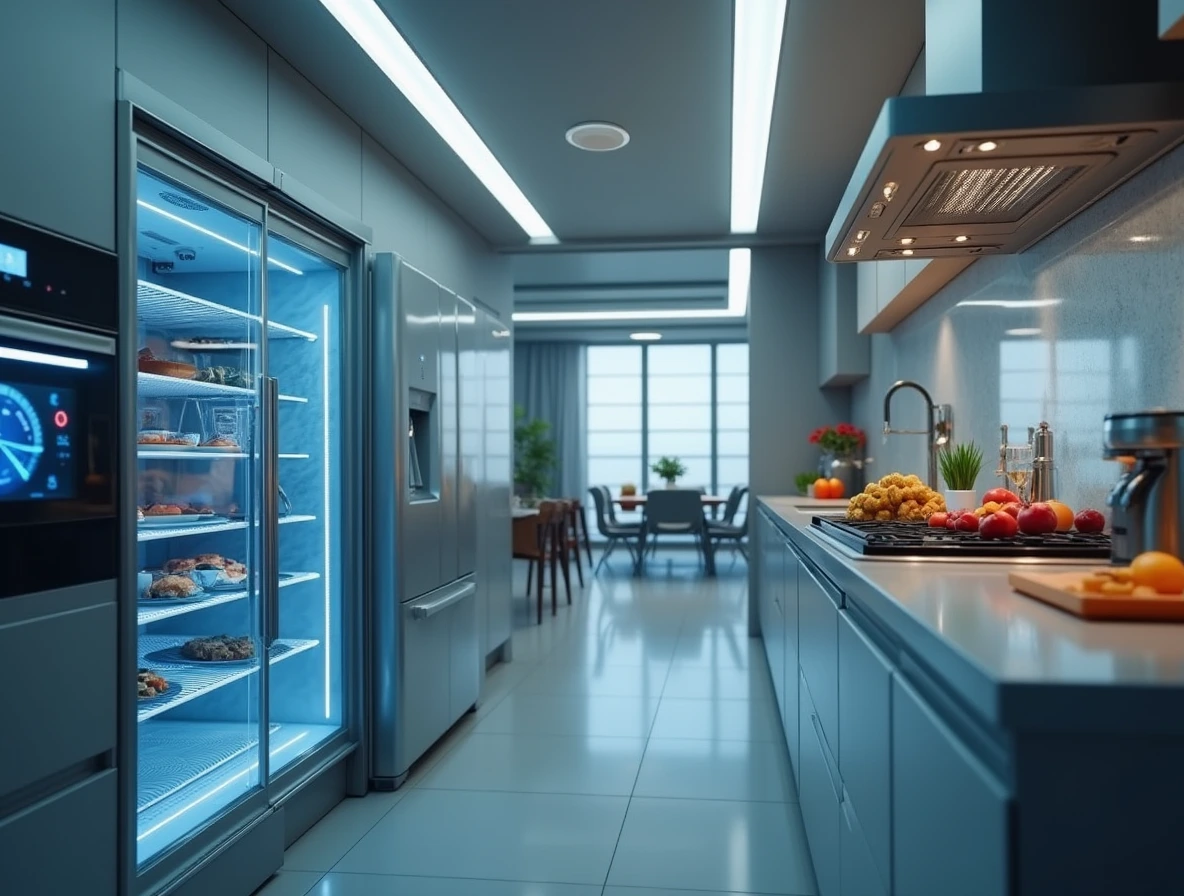
5.2 Perfect Synchronization Across Your Kitchen
In 2025, all your kitchen devices will communicate seamlessly. Your smart oven will preheat automatically when your refrigerator predicts you’ll cook dinner, and your coffee machine will sync with your morning alarm to brew your favorite cup as you wake up. This synchronization will make meal preparation effortless and enjoyable.
6. Algorithms That Improve Our Eating Habits
6.1 Analyzing Nutritional Needs
Advanced algorithms will transform the way we approach nutrition. By analyzing your health data, activity levels, and personal goals, these systems will create meal plans that not only meet but exceed your nutritional requirements. Whether you’re looking to build muscle, lose weight, or simply feel more energized, these algorithms will act as your personal dietitian.
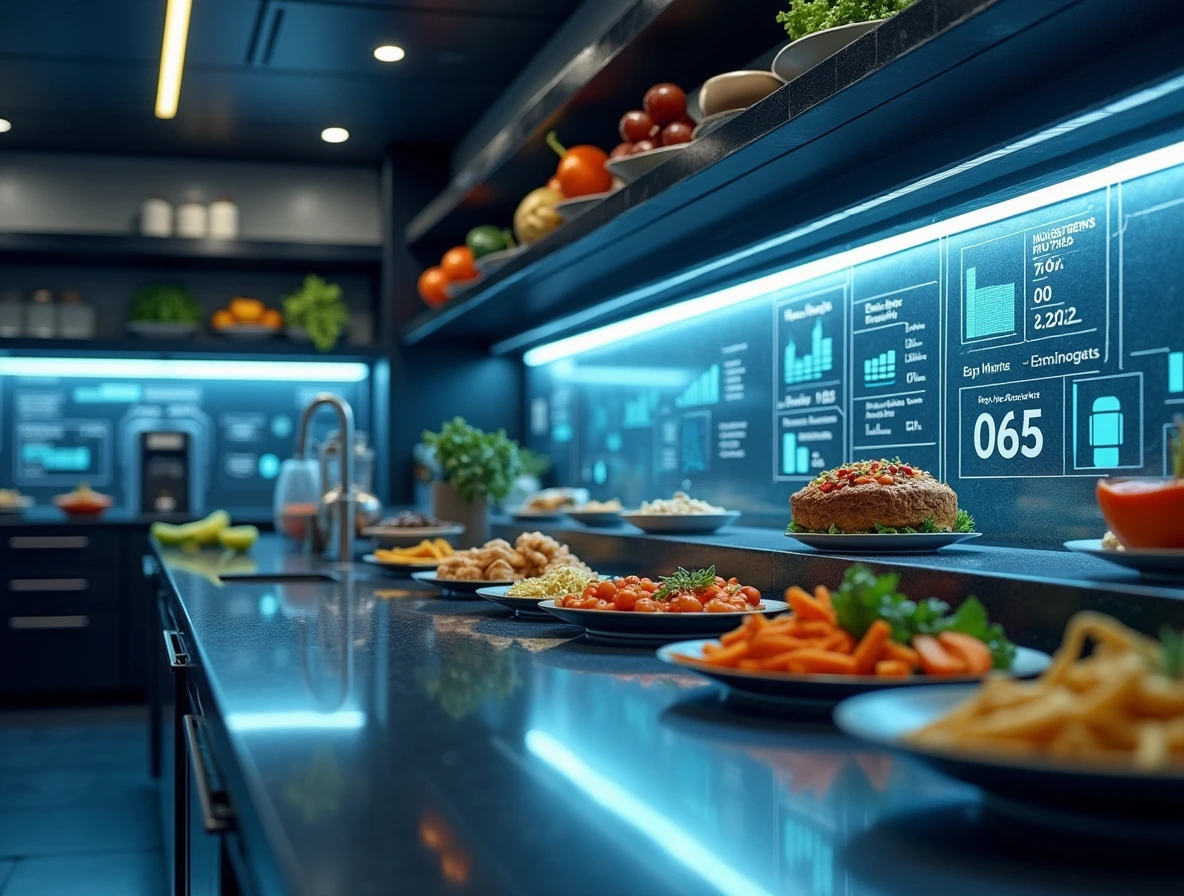
6.2 Personalized Disease Prevention
These tools won’t just help you eat better they’ll also prevent illness. By monitoring your health trends over time, they’ll recommend meals that reduce the risk of conditions like heart disease, diabetes, or high cholesterol. This proactive approach will make food a cornerstone of preventive healthcare.
7. The Rise of Plant-Based and Alternative Proteins
7.1 A Shift Toward More Sustainable Ingredients
By 2025, plant-based and alternative proteins will dominate the culinary landscape. Consumers will embrace ingredients like chickpea-based eggs, lab-grown meat, and algae protein for their environmental benefits and nutritional value. These alternatives will no longer feel like compromises but rather exciting new options.
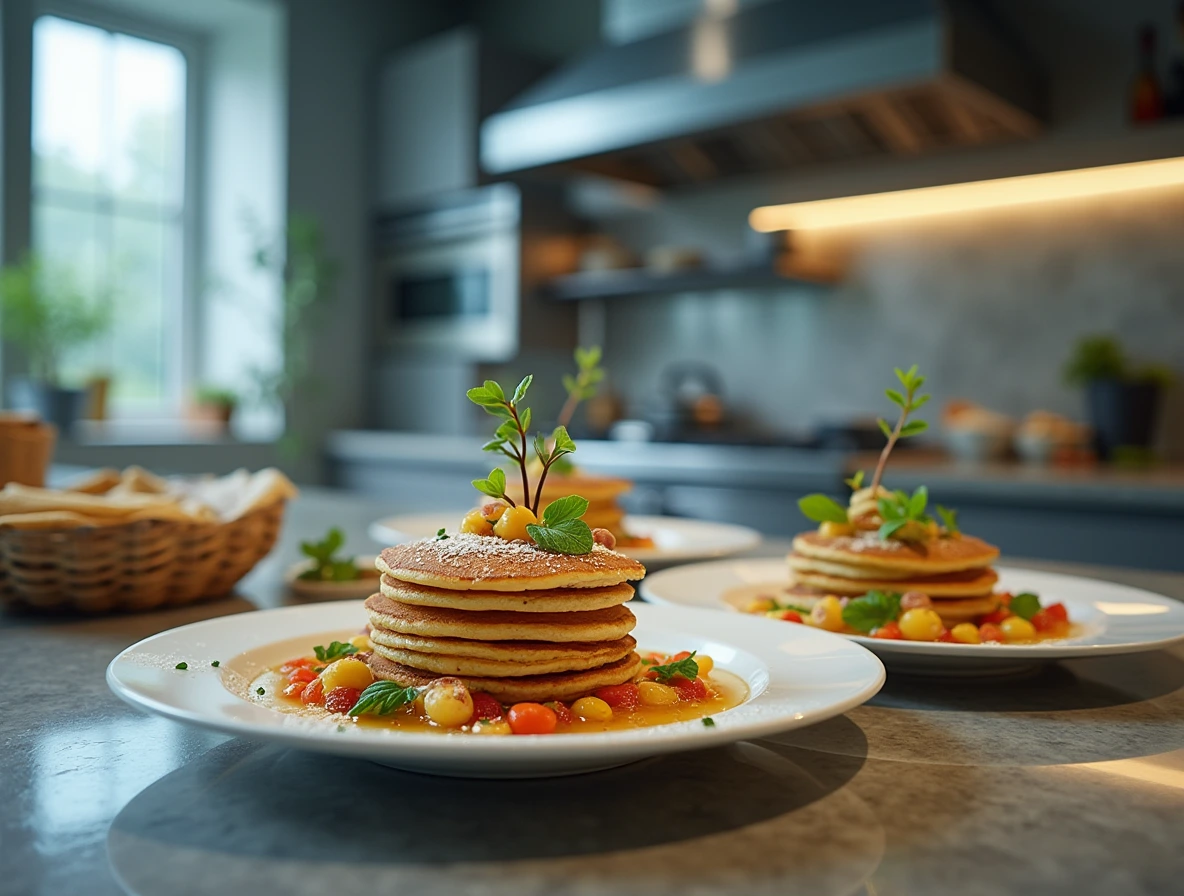
7.2 Innovative Recipes Featuring Alternative Proteins
Chefs, aided by AI, will develop groundbreaking recipes using these proteins. Expect to see dishes like cricket-flour pancakes or algae-based smoothies gaining mainstream popularity, pushing boundaries while maintaining taste and texture.
8. The Growing Popularity of Genomic Cuisine
8.1 A Diet Based on Your DNA
Genomic cuisine will tailor meals to your unique genetic profile. By analyzing your DNA, these systems will recommend foods that enhance your health and reduce your susceptibility to specific conditions. Whether you need more omega-3s or less sodium, your diet will evolve alongside your biology.
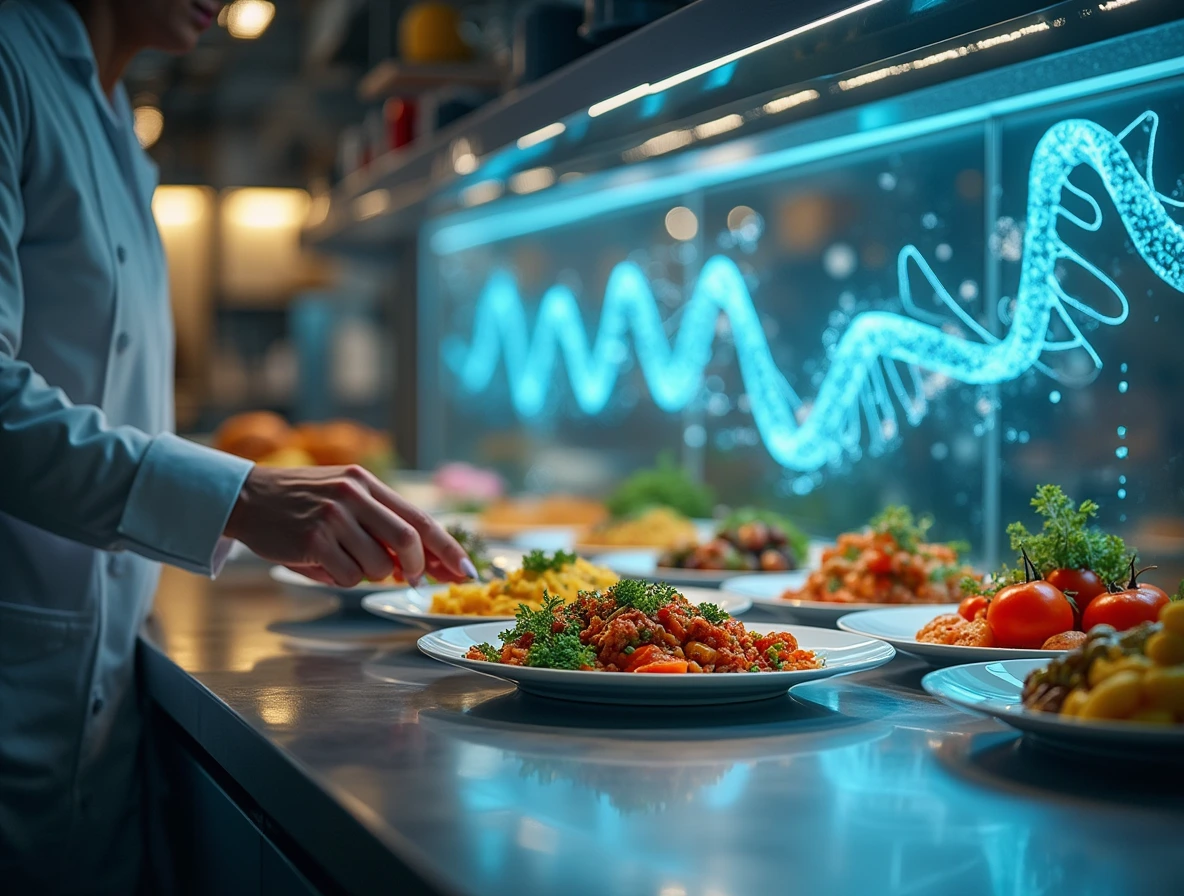
8.2 Customized Menus for Every Stage of Life
From childhood to old age, genomic cuisine will offer tailored menus that adapt to your changing needs. For instance, children will benefit from meals that support growth, while seniors will enjoy diets focused on maintaining cognitive health and mobility.
9. Virtual Cooking Schools with Full Immersion
9.1 Learning to Cook from Home
Virtual reality will bring professional culinary schools into your living room. Through VR headsets, you’ll step into realistic kitchen environments where you can learn techniques, interact with tools, and practice recipes under the guidance of world-class chefs.
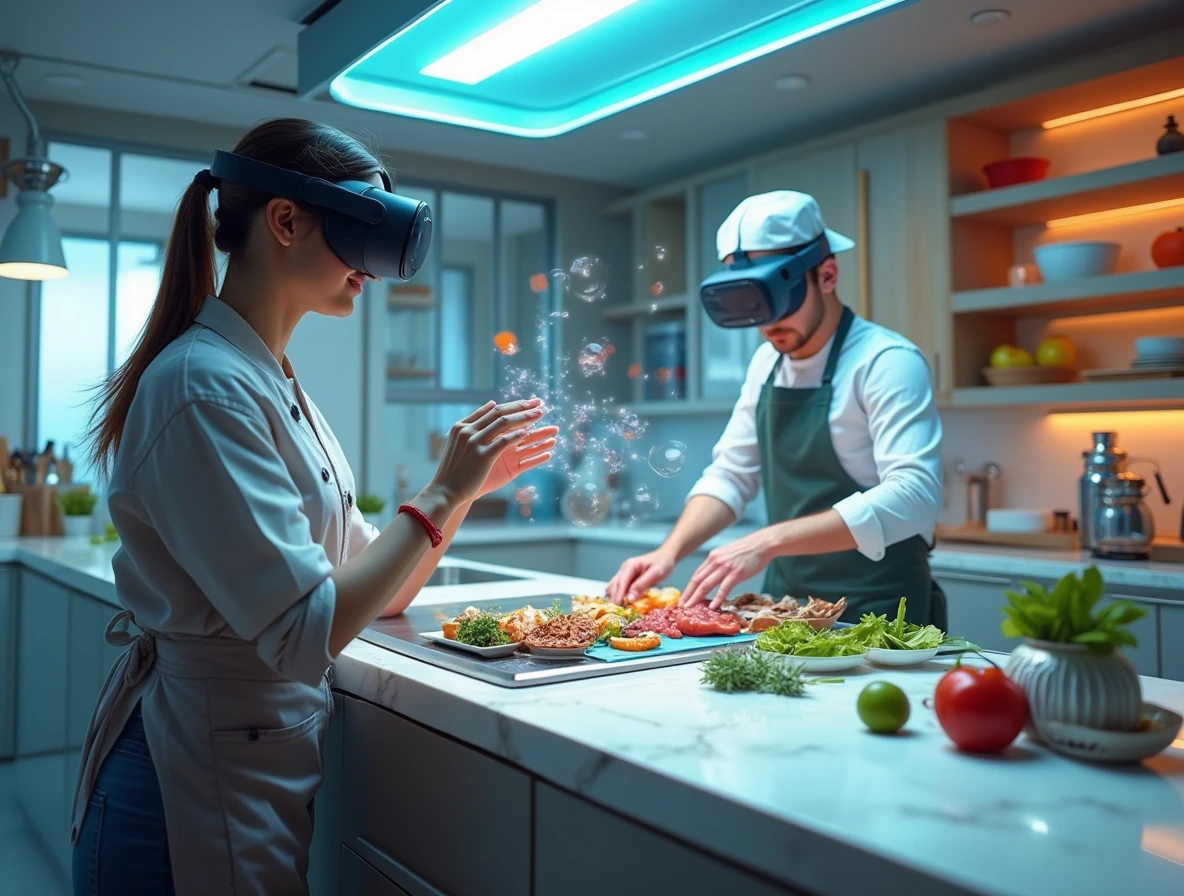
9.2 Lessons Guided by Real and Virtual Chefs
AI-powered virtual chefs will lead personalized lessons, offering instant feedback on your knife skills or plating techniques. Whether you’re a beginner or an aspiring professional, these lessons will be accessible, affordable, and effective.
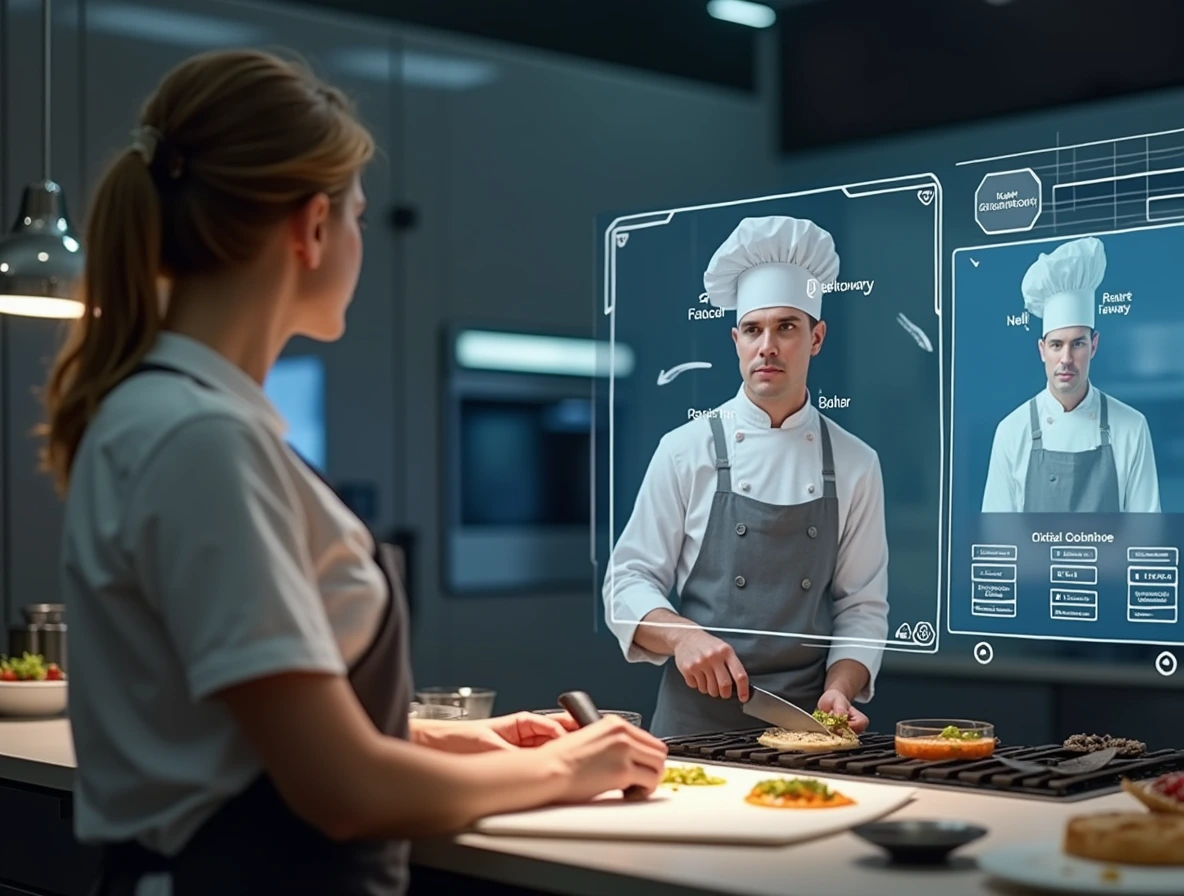
10. Augmented Dining: Predictions for Cooking in 2025
10.1 A Complete Sensory Immersion
Restaurants in 2025 will use augmented reality to elevate dining experiences. Imagine eating a tropical dish while surrounded by a virtual rainforest, complete with sounds of birds and flowing water. This multisensory approach will make meals unforgettable.
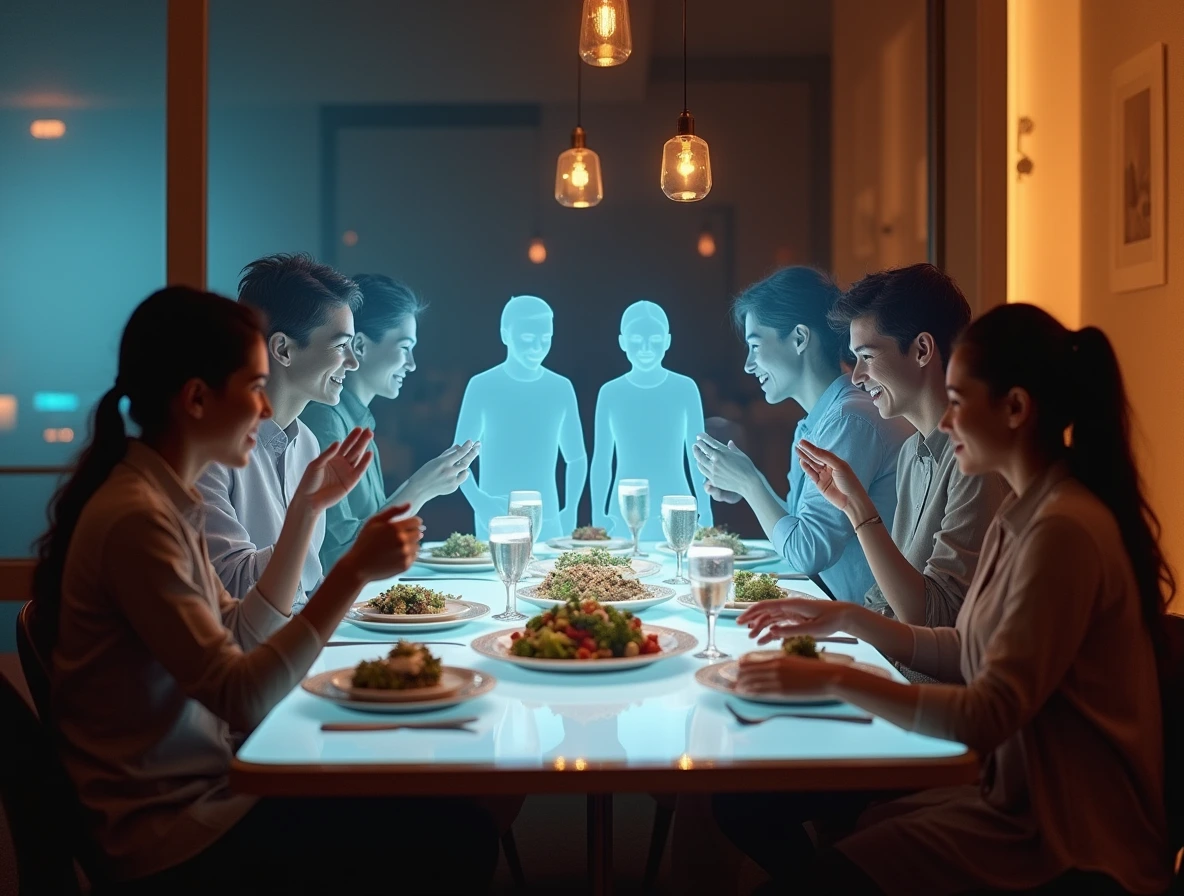
10.2 A New Way to Socialize at the Table
Holographic technology will allow families and friends to share meals despite being miles apart. You’ll sit at a virtual table with your loved ones, enjoying both food and conversation as if you were in the same room.
Another article on the magic of recipes that might interest you.
Your Feedback Inspires Us, Share It!
There are no reviews yet. Be the first one to write one.
